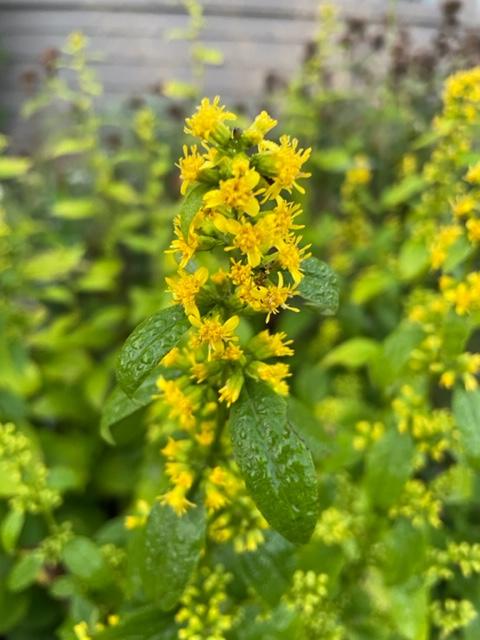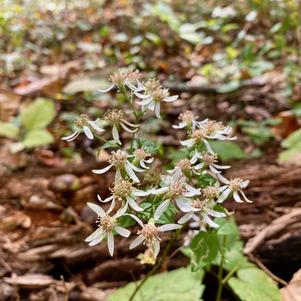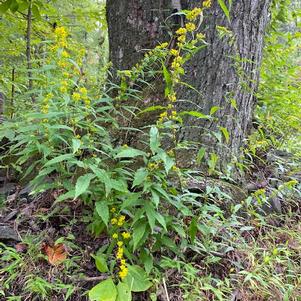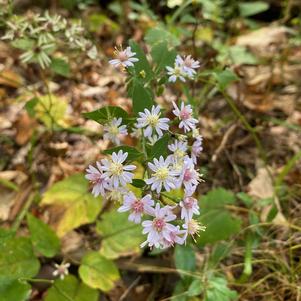« Previous Plant | Next Plant »
Solidago flexicaulis
ZigZag Goldenrod
Solidago flexicaulis, known commonly as Zig-zag goldenrod, is a slow rhizomatous woodland species, 2-3' tall, blooming from late August-late September, in partial sun to dappled shade. Solidago flexicaulis has broad dark green foliage, and grow in upright unbranched stems. Solidago flexicaulis is happiest in rich, deciduous woodlands where it is able to spread. Zig-zag goldenrod is a great choice for both cultivated shade gardens, pollinator gardens, or woodland restoration projects. Many insects rely on foliage for fall food, such as moth and caterpillar species. Additionally, the seed of Solidago flexicaulis provides winter food for many songbirds and game birds, like wild turkeys and grouse. Solidago flexicaulis is part of a small group of woodland goldenrod species, like Solidago caesia or Solidago ulmifolia. Solidago is a keystone species, supporting over 100 different kinds of butterflies, moths, and native bee species.
- » Woodland Goldenrod
- » Deer tolerant
- » Fall bloom
Plant Characteristics
Additional Information
| Height | 2-3 Feet |
| Hardiness Zone | 4-8 |
| Color |
Yellow |





Sprouts of Solidago flexicaulis offer glimmering yellow flowers above the forest floor from July through September. They prefer sun-dappled shade and a bit of moisture, finding its niches in areas just a touch too wet for Eurybia divaricata or Carex appalachica. They spread throughout the woodland by rhizome and by seed, and are well-loved in the winter by songbirds and upland game birds. Deer may graze on the foliage, though not often. Pollinators, like flies, wasps, butter- flies, and bees, flock to this plant. Some specialist native bees, like the green sweat bee (Augochlorella aurata), prefer the Solidago species nectar over any other plant species. Solidago flexicaulis is also a host plant to the brown-hooded owlet moth. Even more impressive, this species tolerates black walnut trees. Solidago species have long been used for their medicinal qualities in healing fevers, kidney ailments, sore throats, cramps, even hemorrhages.